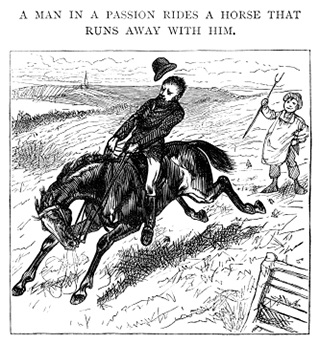PTSD Symptoms
If a Person’s Body Can’t Move Past the Traumatic Experience, They Get Stuck in Fight, Flight, or Freeze.
 Threatening events cause reactions in the body to prepare one to fight to protect oneself or flee, including heightened awareness, increased heart rate, fear, or anger. Post-traumatic stress disorder occurs when these natural and largely instinctual reactions fail to successfully avoid the threat, or there is no safe place or person to help the survivor unwind the high anxiety afterwards.
Threatening events cause reactions in the body to prepare one to fight to protect oneself or flee, including heightened awareness, increased heart rate, fear, or anger. Post-traumatic stress disorder occurs when these natural and largely instinctual reactions fail to successfully avoid the threat, or there is no safe place or person to help the survivor unwind the high anxiety afterwards.
Signs and Symptoms of Post-Traumatic Stress Disorder
The signs and symptoms of post-traumatic stress disorder can show up immediately following a traumatic event or can develop slowly over the course of weeks, months, or even years following the event. Sometimes the symptoms are regular for the afflicted. Other times the symptoms seem to come and go with no apparent provocation, though usually they are triggered completely unconsciously by something in the person’s life connected to the earlier threat.
For example, a female client of mine had strong feelings of both attraction and repulsion to men with beards. After Somatic Experiencing work, she realized a connection with a childhood abuse experience by a man with facial hair. After that, she came to feel neutral around men with beards.
Typically, the symptoms of PTSD fall into three categories:
Intrusion
Highly traumatic events cause PTSD when they intrude into your everyday life in the form of flashbacks, nightmares, or intense memories of the event. Sufferers may experience:
- Frequent nightmares — occasionally these nightmares are a re-living of the original event, but often they have no direct resemblance.
- Flashbacks — during flashbacks, you may feel the event again or believe that it is occurring again.
- Inability to stop thoughts about the traumatic event.
- Intense physical responses to memories of the event — these may include nausea, increased heart rate, sweating, tensing muscles, and feelings of intense distress.
- Unconscious and unintentional repetition of traumatic life patterns, such as choosing abusive mates or placing oneself in dangerous situations.
- Strong emotions that are difficult to manage (i.e., anger or sadness).
Avoidance
Since the past trauma was so overwhelming, sufferers of PTSD unconsciously go to great lengths to avoid re-experiencing those overwhelming feelings. Avoidance symptoms of PTSD include:
- Avoiding reminders of the event (the places, people, situations, sounds, or smells that bring back the original feelings)
- An inability to remember certain parts of the event or the whole event
- A tendency to minimize the importance of the event(s) in one’s life or to be blind to the connection between the event and the current symptoms
- General loss of interest in life and the people around you…apathy, lack of creative fire or creative drive
- Emotional numbness, depression, or low energy, sometimes severe enough to cause inclinations to suicide or other self-harm
- Attempts to self-medicate often resulting in substance abuse or other addictions
- Lack of interest in the future and a belief that things will not get better with time
- Difficulty trusting others and/or building friendships and healthy intimate relationships
Hyperarousal
 When you sense a serious threat, there is a heightened awareness of your surroundings and a physical readiness to act. This can become PTSD when the nervous system is so overwhelmed it cannot return to normal after the threat subsides. Hyperarousal symptoms of PTSD include:
When you sense a serious threat, there is a heightened awareness of your surroundings and a physical readiness to act. This can become PTSD when the nervous system is so overwhelmed it cannot return to normal after the threat subsides. Hyperarousal symptoms of PTSD include:
- Difficulty sleeping
- Frequent digestive problems associated with stress
- Gland or organ weakness from stress over a prolonged time
- Muscular or joint pain from chronically held muscle tension
- Obsessive worry, guilt, shame, or self-hatred
- Obsessive thinking, often attempting to work out solutions to problems, real or imagined
- Frequent and uncontrollable anger, reacting out of proportion to the current circumstances
- Hyper-vigilance of your surroundings, restlessness, an inability to relax
- Panic or anxiety attacks
- Phobias; i.e., excessive fear response usually to harmless things
- Excessive startle response to some event, like an unexpected noise
Many experts suggest that more than 70% of all diseases are caused or contributed to by stress. For example, the Institute for Science, Technology, and Public Policy states that, “Ninety percent of disease is caused or complicated by stress.” Since PTSD is chronic stress, the list of potential symptoms of PTSD is far longer than could be listed here.
When you are ready to try the Somatic Experiencing® experience for yourself, contact me for a free 20-minute consultation. We’ll get to know each other a bit, and I’ll help you understand how Somatic Experiencing can help you where you specifically want to make changes in your life. Call me for that appointment at 970-493-2958 or use my contact form here.
